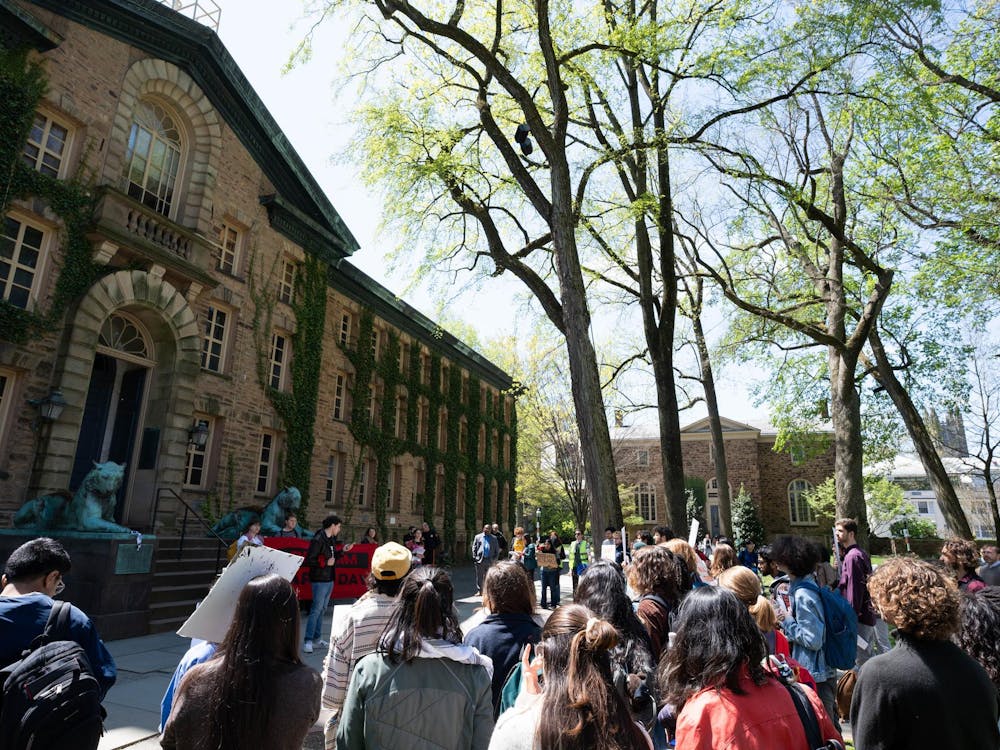April is now upon us, which means one thing to the masses of bleary-eyed seniors who fill Firestone Library: Thesis due dates are drawing near. But while some seniors have already finished writing their theses, had them bound and turned them in, others have over a month to go until their due dates. Traditionally, each department has decided its own due date. As a result, due dates range from late March to early May. The Board believes that the lack of a standardized thesis date is detrimental to the thesis writing process, class unity and the senior year experience and therefore proposes implementing one due date for all senior independent work.
While deadlines for junior independent work also vary, this is less problematic. For one, there is more variation across departments when it comes to junior papers; while some departments require one, others require two. Senior independent work is more normalized in that nearly every A.B. department requires one thesis. In addition to this, senior independent work is a more defining experience, and thesis due dates affect senior class attitudes and unity in a way that does not apply to juniors, as explained below.
One practical reason for a standardized thesis deadline is that it will increase awareness of when theses are due. Throughout the year, both seniors and professors can express confusion about their theses deadlines. Each department’s due date can change from year-to-year, especially because they are often based on days of the week, rather than days of the month. In addition to this, the time of day at which theses are due varies by department. Professors may also be unaware of their advisees’ due dates because they have a full schedule of teaching and research in addition to advising, so it is not their only priority. When seniors and their advisers are unaware of due dates, it is clearly detrimental to the seniors' progress. If there were one standardized date and time at which all theses were due, all seniors and advisers would be on the same page and would be able to remind each other of the deadline, leading to increased awareness.
Another reason to implement a standardized thesis deadline is that it is fairer. As an example, each semester, Dean’s Date sets one deadline for all students’ written work. This promotes fairness because everyone has the same amount of time to complete his or her work. With one thesis deadline, each senior would have an equal amount of time both to complete work and to enjoy post-thesis life. Recognizing that there is a difference in the amount of time and possible setbacks to science concentrators required to conduct a lab experiment and produce conclusions than, say, a history major who has the liberty of creating a steady work schedule, the Board recommends a mid-April deadline that is between the current due date extremes.
As Dean’s Date does for all undergraduates, a single thesis deadline would increase encouragement and a sense of unity among members of the senior class. On Dean’s Date, there is a pervasive sense that we are all in it together, and students encourage one another as they work. A uniform thesis deadline would do the same thing for the senior class.
One deadline would also promote unity after theses are turned in. As it stands, the senior class is very divided during the second half of the spring semester: Some are hard at work on theses, while others can relax and enjoy the end of their time at the University. If all theses were due on the same day, seniors would be united. When theses are turned in, seniors finally have the opportunity to immerse themselves in their coursework, bond with their classmates in enjoying their last few weeks at the University and practically prepare for their life transition. As it stands, it is unfair that some seniors with very late thesis due dates have little time to complete their Dean’s Date work and study for finals. In addition, the fact that some seniors are working on their theses longer than their peers and thus not spending time bonding with their senior friends is a detriment to the senior experience.
The one potential problem with a standardized deadline is the stress that it will put on the organizations that provide binding services, as there are only a few places in town that do this. However, with more organization and planning in advance, it should be feasible for these businesses to have all theses bound by the deadline. The Board does not believe that concerns about local businesses should play a large role in shaping the University’s academic policies, especially because a standardized deadline would significantly strengthen seniors’ independent work experiences and sense of community.
While thesis dates currently vary by academic department, there is no convincing reason for this tradition to continue. A single thesis deadline would create a fairer, more unified and overall better experience for all seniors.








